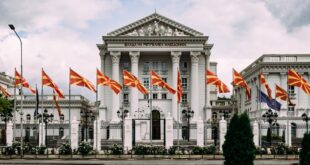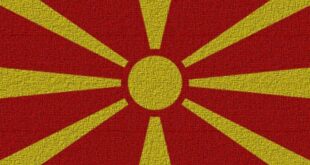Macedonia today takes over the rotating chairmanship of the Council of Europe’s Committee of Ministers, holding the post for the first time since the country gained independence.
Despite Greek opposition to the name “Macedonian Chairmanship 2010”, which Skopje chose to title its six month long presidency of the distinguished organisation, no Greek protests are expected today in Strasbourg, where the Council of Europe is located.
The official ceremony will be held at the 120th session of the Committee of Ministers. It is possible that the Greek delegation might abandon the plenary hall during that time in sign of protest, Macedonia’s A1 TV reported.
Skopje has said that its first-ever chairmanship will focus on strengthening human rights protection, fostering integration while respecting diversity and promoting youth participation in political life.
“I hope and firmly believe that we will have an excellent chairmanship, we will make an excellent impression and we will be an example for other future holders of the chairmanship,” Macedonian Prime Minister Nikola Gruevski told media in Skopje on Monday.
Macedonia will take over the six month rotating chairmanship from Switzerland and will hand it over to Turkey in November.
Athens and Skopje are entrenched in a nearly 20 year long dispute over which state has the right to use the name Macedonia. Athens insists that Skopje must change its official name, Republic of Macedonia, if it wants Greece to unblock the country’s bids to join NATO and the EU. Greece says the current name implies territorial claims against its own northern province, also called Macedonia.
The Council of Europe is one of the oldest international organisations in the world. The Council has 47 member states, including the countries of the European Union. Its main focus is on the reinforcement of democracy, human rights and the rule of law.
The Committee of Ministers is made up of the foreign ministers of the member states and is the organisation’s decision-making body. It serves both to present national stances to issues addressed at the Council of Europe and as a place where European responses to relevant challenges can be formulated.
 Eurasia Press & News
Eurasia Press & News



